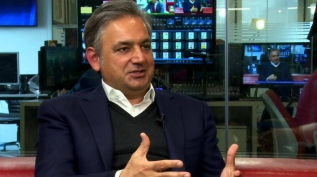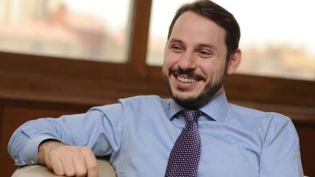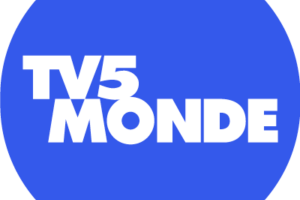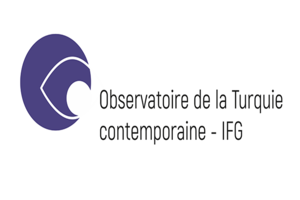How Turkey’s biggest media group kneels before President Erdoğan
Doğangate: How Turkey’s biggest media group kneels before President Erdoğan
Is it fair to say, that the destiny of Turkey darkens by every that that passes?
I know reading like this leave you with a sense of gloom but, by all accounts, we observe now the country’s story, which once upon a time sent out signals of change and hope, turns into one of a nightmare.
The mechanisms of oppression will tighten. On Wednesday night, after a six hour meeting, the National Security Council (MGK), which is chaired by President Erdoğan, consisting of key ministries and the Chief of Staff members, issued a statement saying that ‘it has decided to recommend an extension of the Emergency Rule.’
This seems to overlap with the expressed desire of Erdoğan and the Prime Minister, Binali Yıldırım, to continue to rule the country by way of decrees. It means that the ‘decree regime’ will most likely to be extended another three months, after October 21. Since the constitution does not put any time limit to the Emergency Rule, some in the opposition – top figures in the main opposition pary, CHP and pro-Kurdish party, HDP – fear it can be extended ad infinitum.
Oppressive rule, the history teaches us, is often a result of profound decay, and is insisted on, for preserving it. The weeks and months leading up the bloody coup attempt and what has happened thereafter is shockingly self-explanatory on how widespread decay had spread within the state institutions – with ideological stiffness, partisanship, and infiltration of illegitimate power-hungry groups – as well as main bulks of the political class and even amongst the elite.
What, then, if the media is part of the rottenness? How can one expect a fight against corruption of sorts when journalism itself has been taken hostage by it? This one in Turkey’s downward spiralling story makes it, more than anything else, worrisome and injects an overdose to the gloom.
A story developing just on this part, this week, exposes it clearly, and tells how gangrenous power-media relations had become.
It has all the ingredients of drama. At one part, there is a small group of young hackers, and at the other the government. This was the initial part of the story, which then gained new dimensions, involving Turkey’s largest media conglomerate, Doğan Group, with sensational revealings.
The impact is, that it left all the remnants of Turkey’s civilian opposition with disgust, and growing pessimism about the future.
The actors on the stage, in the drama, are the following, adding up to the hackers, calling themselves, RedHack:
Berat Albayrak, current Minister of Energy (and son-in-law of President Erdoğan); Mehmet Ali Yalçındağ, the top manager of Doğan Media (and son-in-law of Aydın Doğan, who is the owner of the media group); Serhat Albayrak, top manager of daily Sabah, rival of Doğan, and the brother of Berat Albayrak). In certain moments, President and his aides, as well as the military commanders, and editors of daily Hürriyet (flagship of Doğan Media) enter the stage.
The story began when RedHack last Friday declared on social media, that it had hacked the mail account of the minister, and if the AKP government had released all the ‘political prisoners’ by Monday evening, it would start publishing all ‘important’ communications online. The authorities were quick to act by arresting some suspects (whose lawyers claimed they were tortured in police custody) but when the deadline passed it became clear they were helpless.
From Tuesday on, one leak after the other landed like a bombshell. Soon it was clear that the main actor was Yalçındağ, and his smarmy correspondence with the minister and his brother, and with an advisor of the president. Overall, the whole group of mails sent by Doğan’s top executive shows an attempt to appease the power circles, by insider reporting of the inner dealings of Doğan’s editorial activities, and even some key disputes within the family that owns the conglomerate.
The leaks so far span a time between mid 2015 until after the coup attempt. In a mail dated May 6 this year, Doğan’s executive writes to the minister and copying his brother, about how ‘open’ he is for adjusting the editorial line to the needs of the government.
”In this period” he writes, ”it would be very useful if we (jointly) could evaluate the pros and cons of our group. We must be clear, I think, on two issues: fight against the ‘parallel structure’ (meaning Gülenists) and the presidential system.”
A week later, Yalçındağ writes to the adivsor of Erdoğan, copying the minister, begging for being part of a welcoming ceremony for Erdoğan. He also mentions the efforts of Aydın Doğan’s daughter, Vuslat Doğan Sabancı, who is the publisher of daily Hürriyet, to have an audition with Erdoğan.
”I learned our esteemed president came to Hilton Hotel (owned by Doğan Media) the other day. I did not know, if I did, I would be there to welcome his excellency at the gate. Vuslat had asked to be there with Aydın Doğan. But she was told it is inappopriate for her father to be there, when there is a military protocol. Vuslat was invited and she welcomed his excellency at the gate. This is normal, but puts me, with a scarce contact to the Palace, in an awkward situation.”
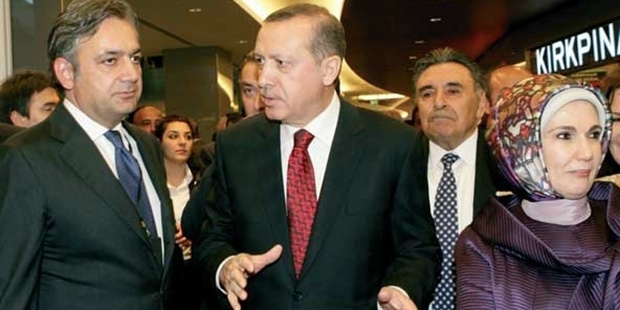
In another mail, sent to Albayrak brothers, Yalçındağ extensively reports on his meeting with Aydın Doğan and tells about how he complained about some critical columnists still continuing to write in Hürriyet. He details how he plans to remove the chief editor with another one, who he believes will be as close as possible to the government, asking for some time.
In a particular correspondence he goes into further detail, talking about some Doğan editors as ‘enemies’ and explains how hard he had to fight against the publisher and chief editor of Hürriyet to block Deniz Zeyrek, Ankara bureau chief of Hürriyet, from appearing in Doğan-owned TV channel, CNNTürk.
He writes to Erdoğan’s advisor and Serhat Albayrak, telling how unhappy he was when he had learned that Prime Minister Yıldırım had given an interview to Zeyrek and continues:
”But this morning our minister of energy did not invite Deniz to his press meeting and I was relieved. Super!”
In another mail, Yalçındağ describes his mission as a ‘project’ and openly declares that he gets his boost by being in close contact with the president and the minister of energy.
There is a little more. Date is now after the coup attempt and Yalçındağ visits the Commander of the Gendarmerie, Gen. Yaşar Güler, and reports to Erdoğan’s advisor about it:
”General Yaşar began by saying that if Aydın (Doğan) had not appointed me, Doğan Group would likely cease to exist. You saved the group, and our expectation is to look strictly after our (national) unity, together, and I hope you continue in this fashion, he said. And I responded: Yes sir, my commander!”
In August 18 – a month after the coup attempt – Yalçındağ writes to Berat Albayrak, sharing his happiness about a call from the president:
”I called our esteemed president and gave him my best wishes. I addressed him as ‘my commander-in-chief’. He liked it a lot. He answered, since our constitution says so, I should not refrain to say so. We laughed. Then I gave the phone to Aydın Doğan. They talked for the first time after a long break..”
It goes on and on.
At the time of writing this chronicle, neither the office of Minister Albayrak, nor the President had issued any statement on the leaks. Yalçındağ denies the correspondence. ”I did not send those e-mails” he said. ”My computer was hacked somehow. I keep diaries for 22 years and they were stolen. They were tampered with by additions later.”
The irony is that, as the correspondence show, it is the same person whose company wants to sell a cyber security system to the Turkish military.
(Yalçındağ was appointed as the top manager of the group weeks after the November 1, 2015 elections which ended with almost a 50% vote victory of the AKP.)
So, let us go back to decay.
Of course, there was no mention of this story in any of the Doğan outlets on Wednesday. Neither any reports in other media owned by the moguls, who, in their own ways, in full appeasement for Erdoğan.
It was only the independent daily Cumhuriyet which did, putting itout as its top headline yesterday. A couple of tiny leftist newspapers also covered it.
To Turkey’s now handful independent editors and reporters, these leaks tell nothing new. In its steady policy of appeasement with the powers, Doğan Group has a dense record. Its proprietor had fired in 2001 a group of columnists who had opposed law, giving media moguls lion’s shares in media sector. Later, in 2004, it went as far as sacking the independent news ombudsman of Milliyet and, as the AKP kept forging its power base in the state, other top journalists within the group had to go, one after another.
But, this is a general dowfall trend in Turkish journalism and therefore, the latest episode is only a reminder:
A corrupted media is not only unable to uncover corruption, but itself becomes a dark curtain when a democracy is being strangled.

